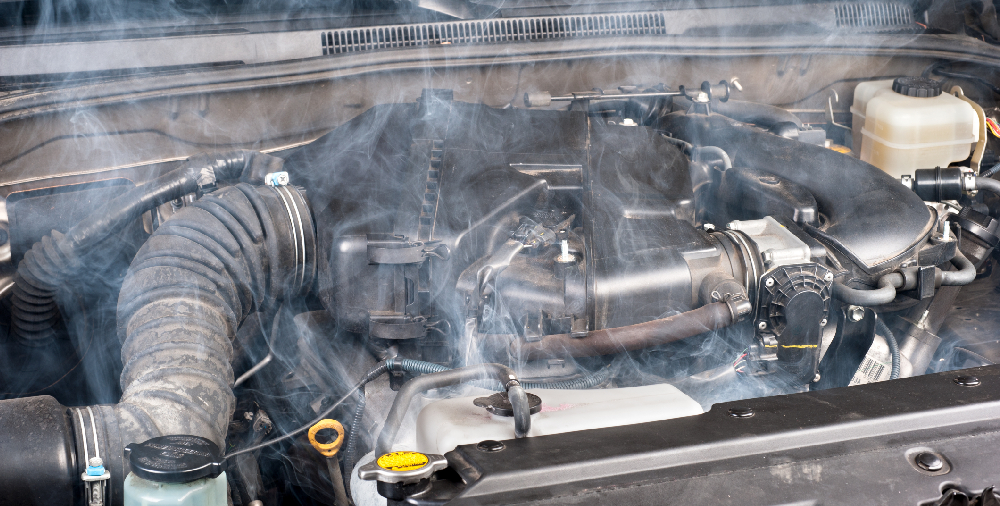Summer is the time for family road trips, cruising to work with your top down, or settling down on a Sunday afternoon to tweak your ride or maybe even give it a shine. But what also comes with summertime heat and driving are car problems. One in particular that will devastate anyone’s day is when your car overheats.
If your car ever overheats, it’s crucial to know what to do as soon as it happens. (Just like jump-starting your car and responding to low tire pressure.) The Performance Muffler team is here to offer the do’s and don’ts when your car overheats.
Potential Warning Signs for Your Car Overheating
Similar to most car problems, there are warning signs for you to pay attention to that may indicate your car is overheating. The common signs include:
- Steam coming from under the hood
- The needle for the engine temperature gauge is in the red area or “H” (for hot). Symbols vary based on vehicle, so familiarize yourself with this warning sign from the owner’s manual.
- An odd, sweet smell coming from the engine area
- The “check engine” or “temperature” light illuminates
Do’s With Your Car Overheating
If any of the warning signs above happen, these are the steps you should follow:
- Immediately turn off the AC and turn up the heat. These two actions will reduce stress and divert heat from the engine.
- Find a safe place to pull over and turn off the car.
- Let the engine sit for at least 15 minutes.
- While the car sits, keep an eye on the temperature gauge to wait until it moves back to normal.
- Call a friend or tow truck because you’ll want your car to go to a repair shop.
- If you have radiator fluid, add it. This can help protect your engine from more damage, and remember to let the car sit for 15 minutes before this.
- If your car isn’t being towed and the gauge returns to normal, carefully re-start your engine and drive to the nearest repair shop while checking the temperature gauge. Don’t continue driving if you notice the gauge creep up toward hot or if the “check engine” or “temperature” warning light illuminates.
Don’ts With Your Car Overheating
If your car does overheat, these are steps you should not take:
- Don’t ignore the warning signs and continue toward your destination. Continuing to drive on an overheated engine will significantly damage your car and can be extremely dangerous.
- Don’t panic. Follow the do’s above and everything should be okay.
- Don’t open the hood immediately. It’s crucial you let your car sit for at least 15 minutes before popping the hood.
- Don’t ignore the problem altogether. Take your vehicle to get serviced as soon as you are able. This problem likely is not an isolated incident, and it will return. Keep you and your car safe by getting it fixed.
Why Might Your Car Overheat?
Now that you understand the proper steps to take (and avoid) when your car overheats, let’s take a step back and identify what likely is causing your vehicle to overheat. The most common causes for engines overheating include: low coolant, defective thermostat, bad water pump, damaged radiator or cap, damaged radiator fan, or blown head gasket. Nevertheless, if your car overheats at all, it is not an issue to take lightly. Have your car serviced ASAP if you encounter engine overheating.
Let Us Repair or Improve Your Car – Contact Us
Whether your car is overheating or facing other issues, or if you’re just looking to improve its look and performance, we can help you. Contact the hard-working and experienced Performance Muffler team for a free quote. We want to help you ensure your car lasts a long time while making your dream vehicle a reality.
Discover how Performance Muffler stands out as a garage for people who “get it” or browse our blog for frequent automotive insight and tips.

